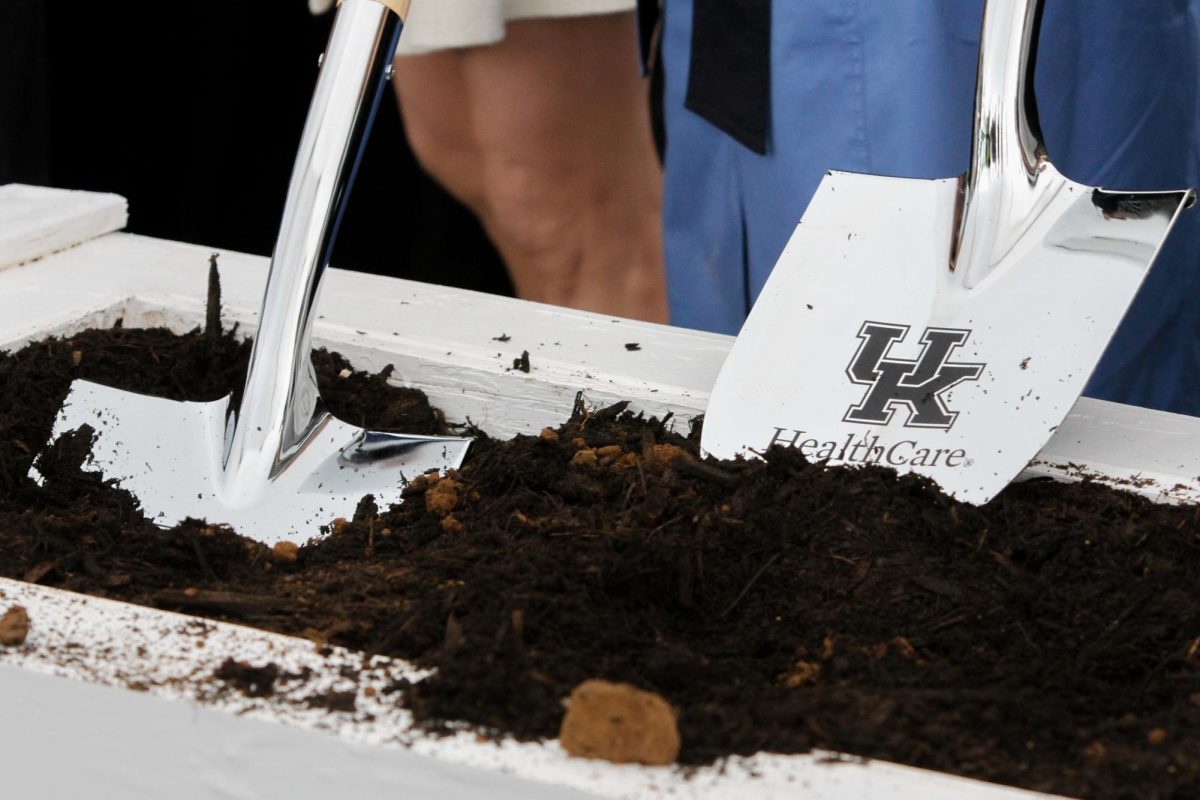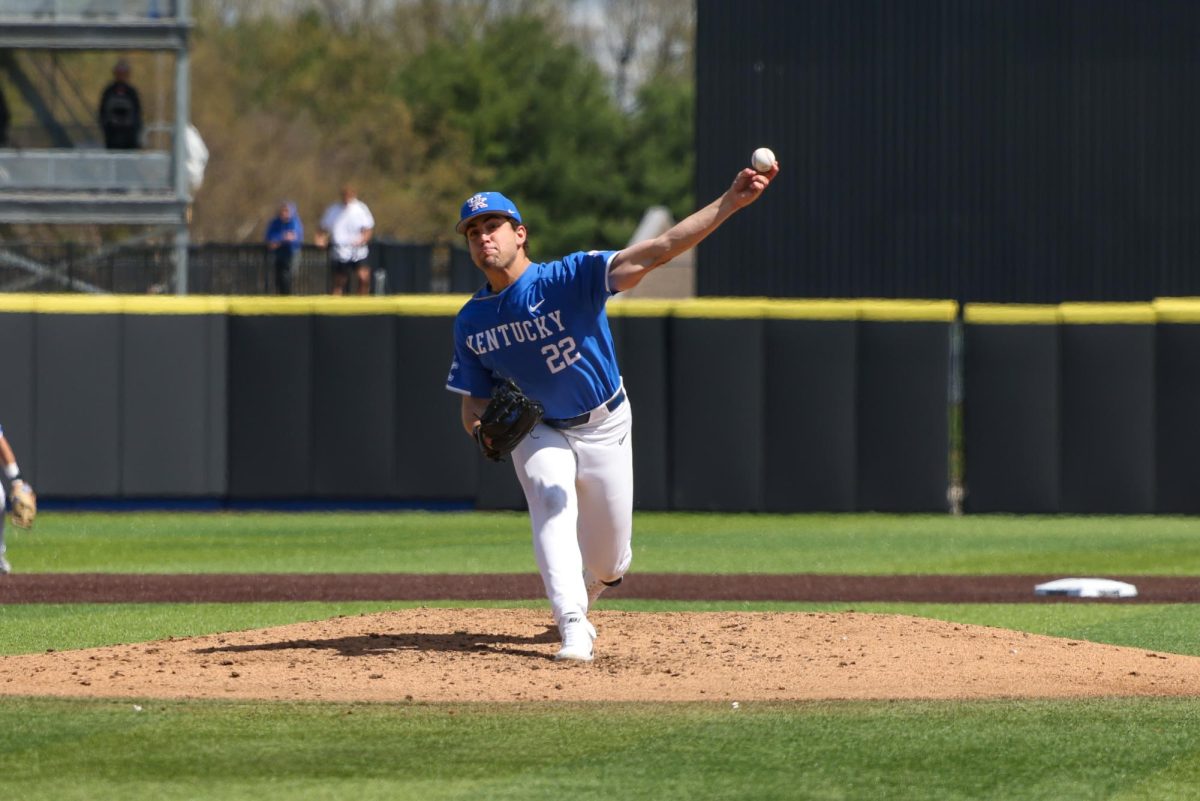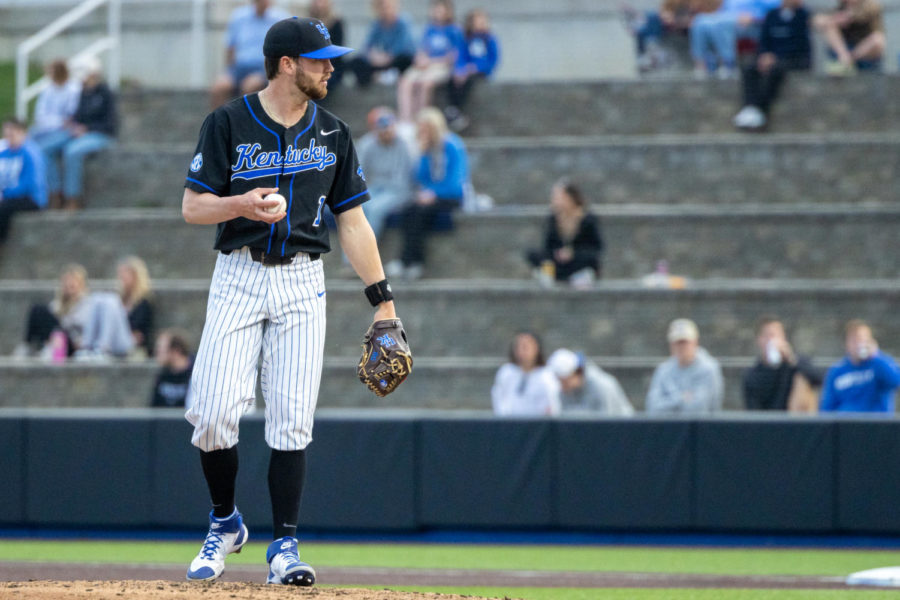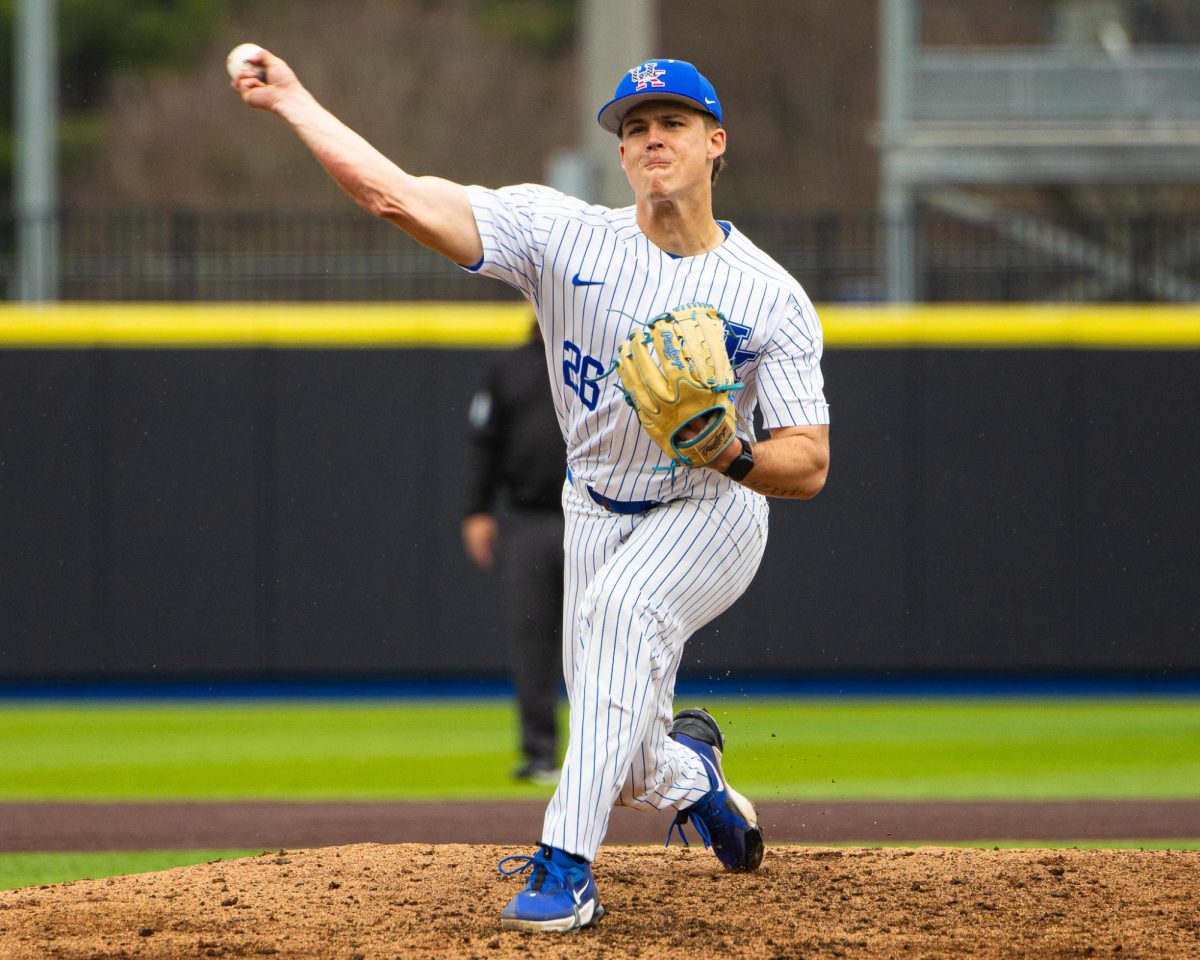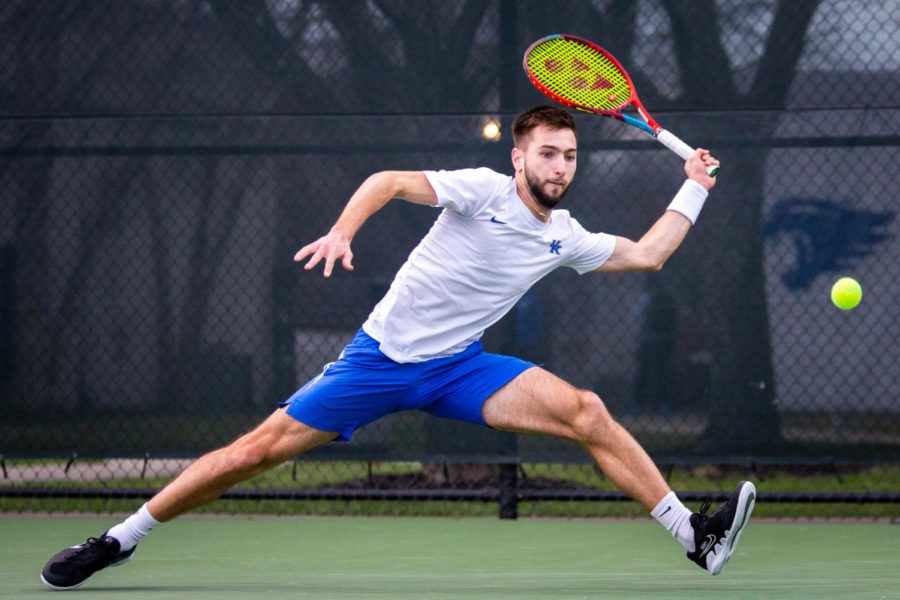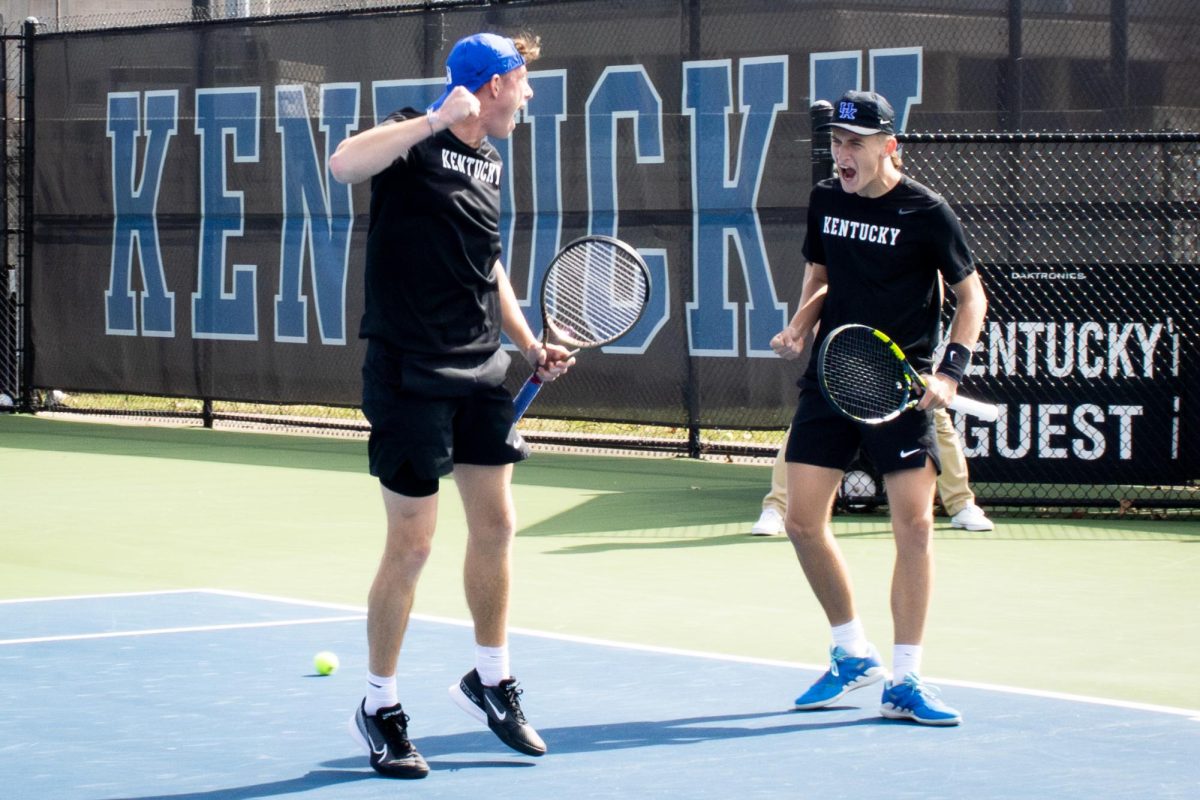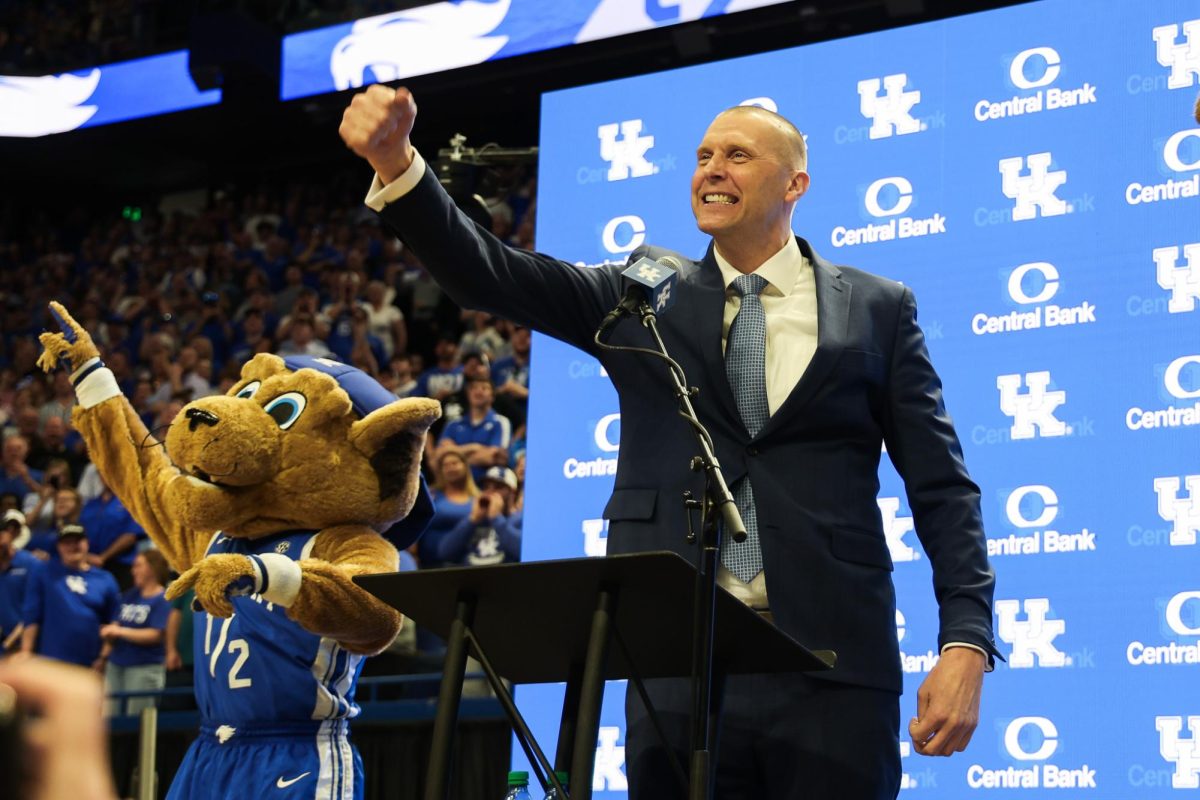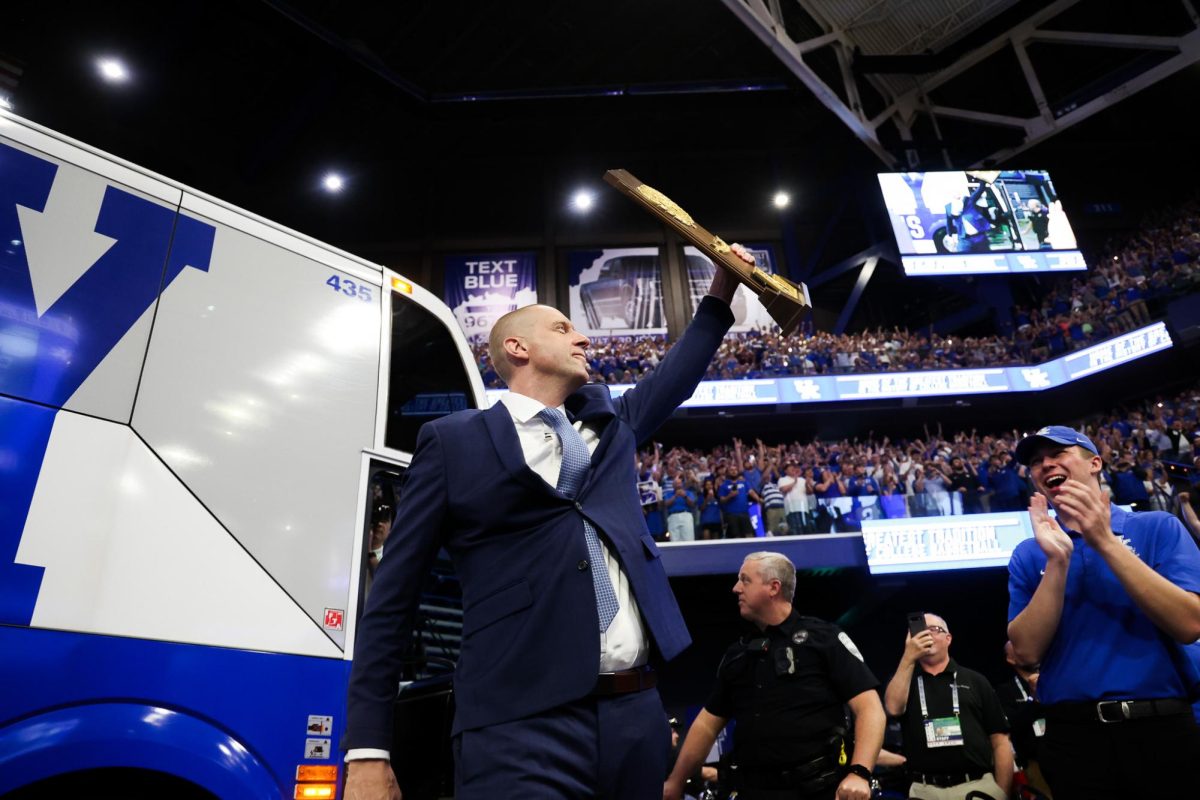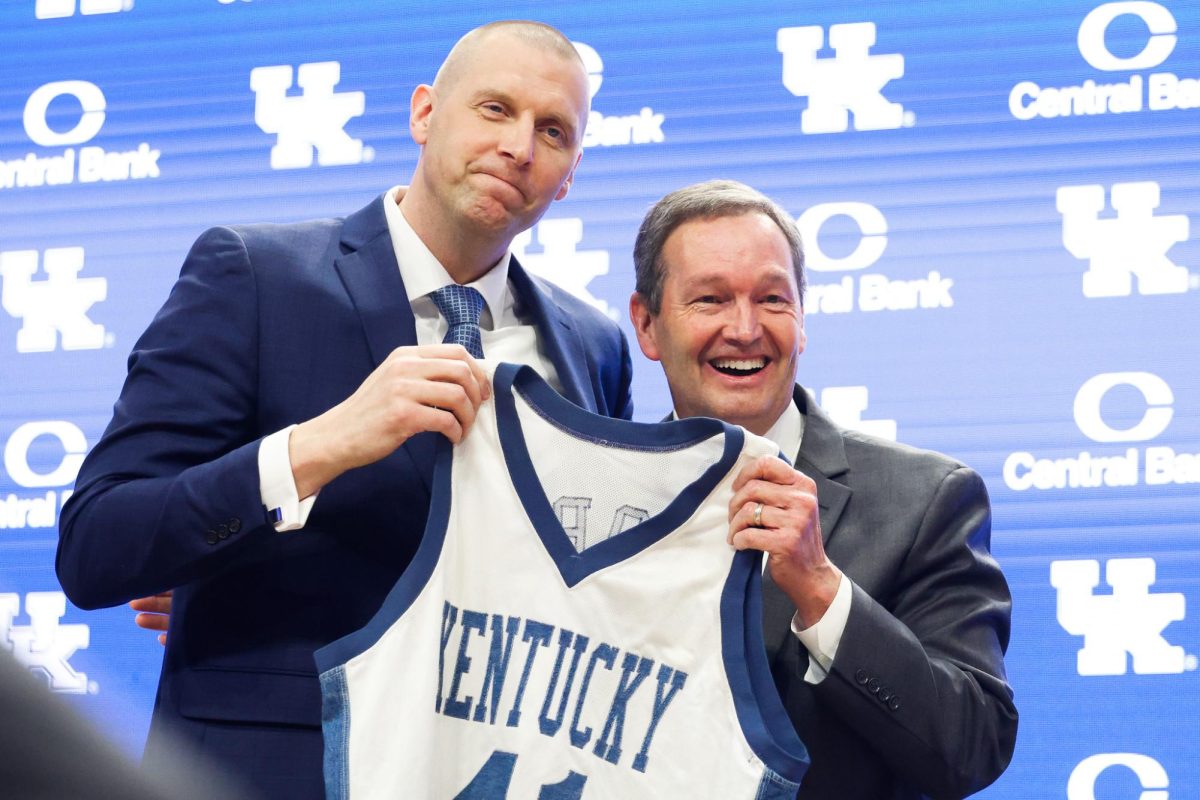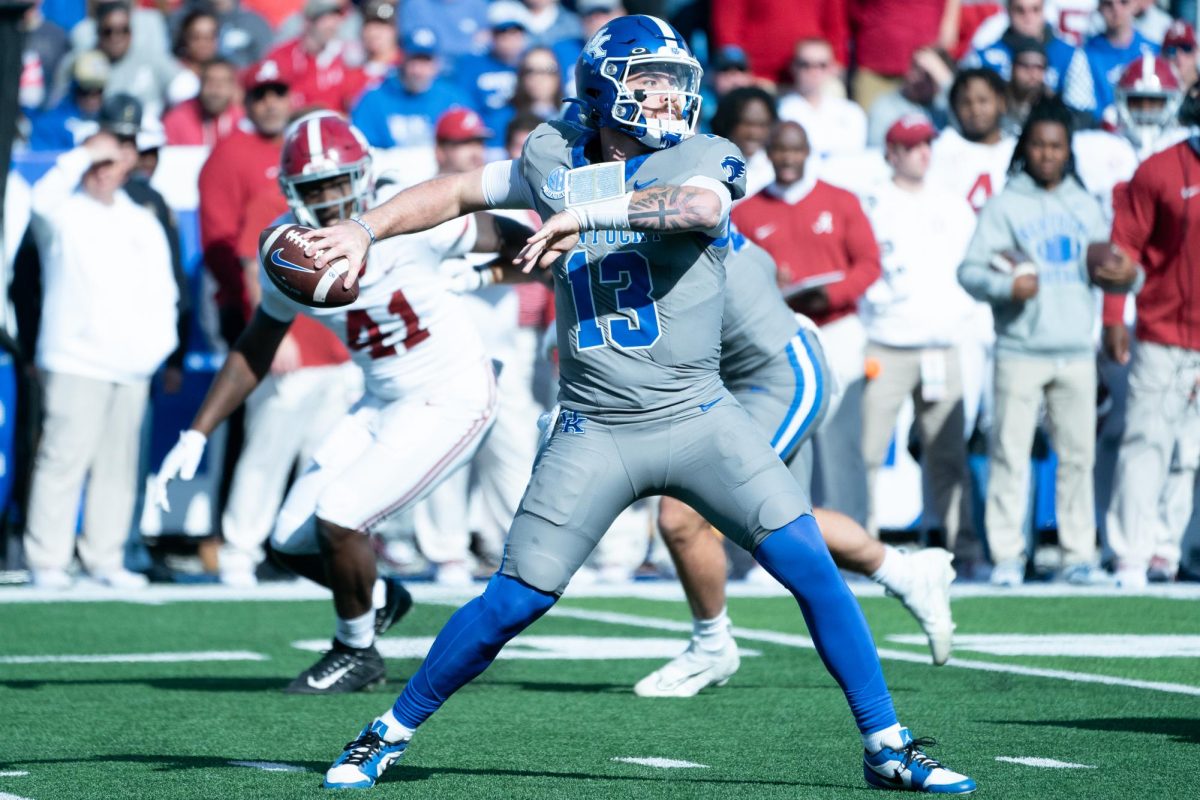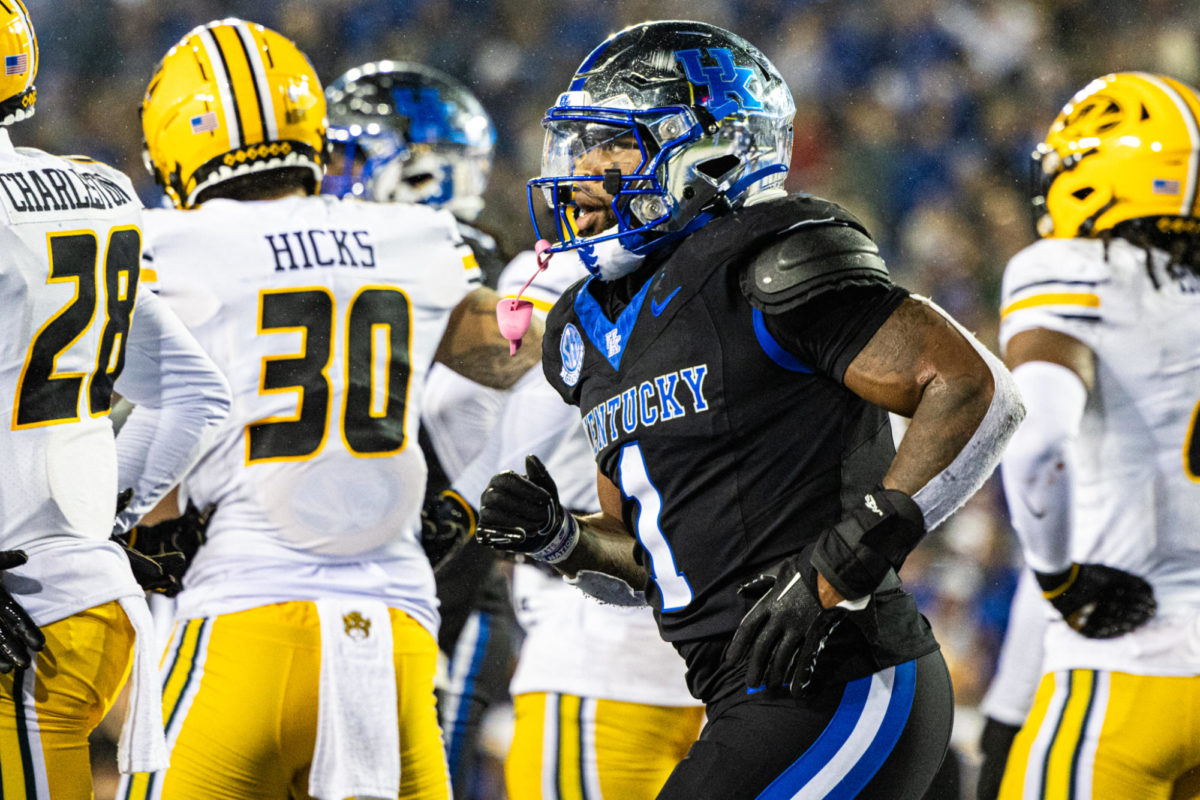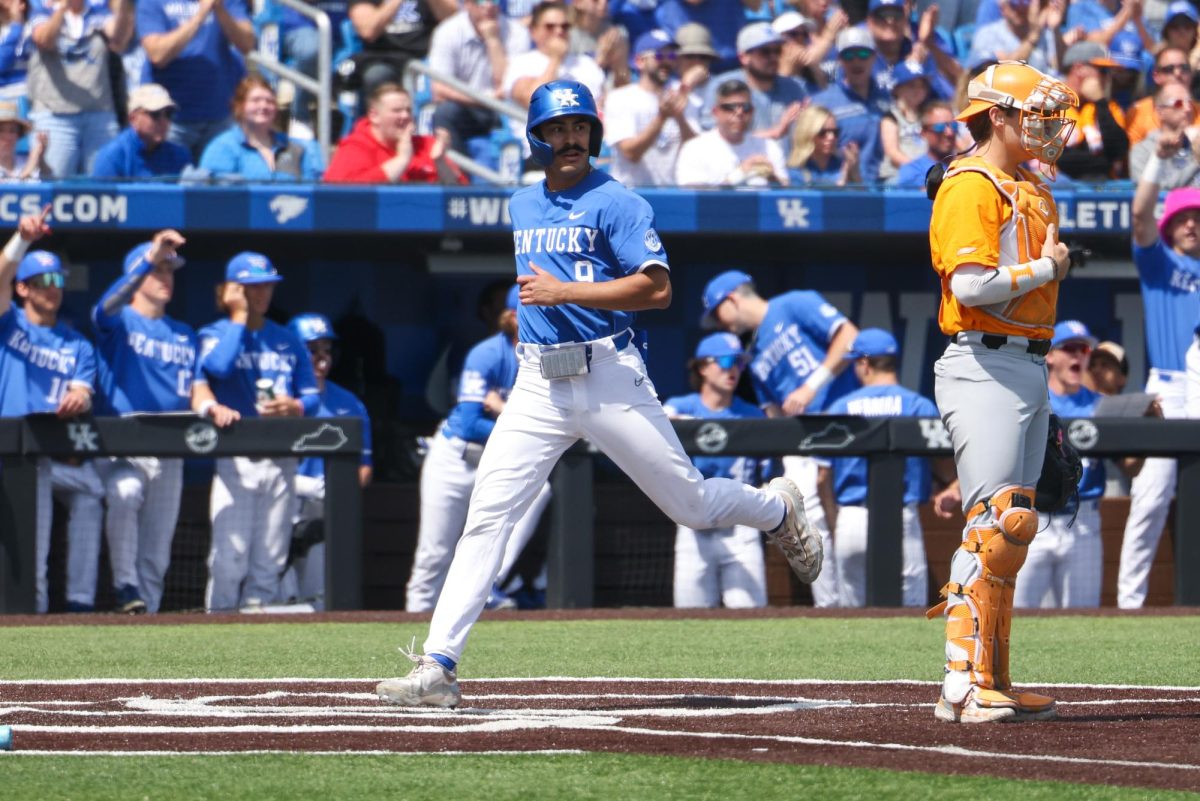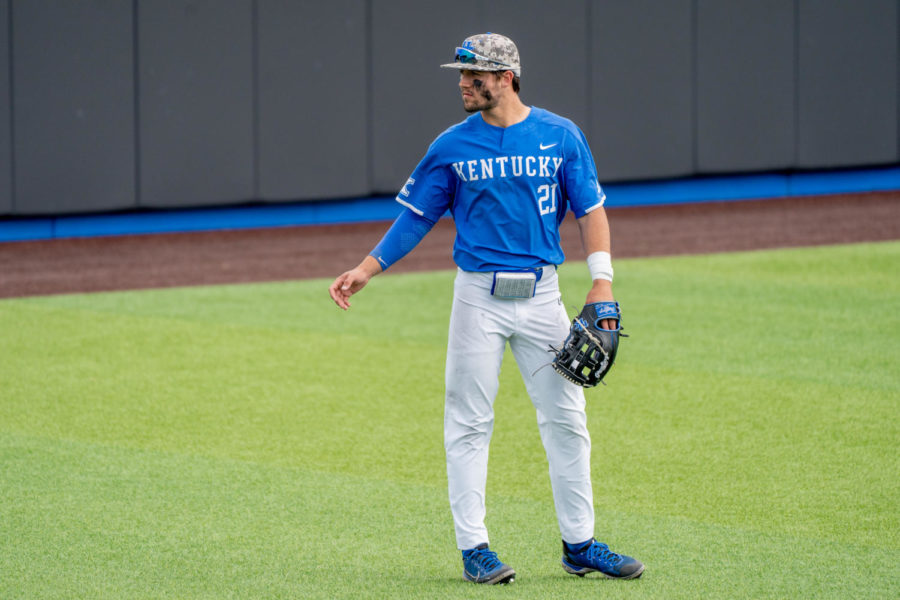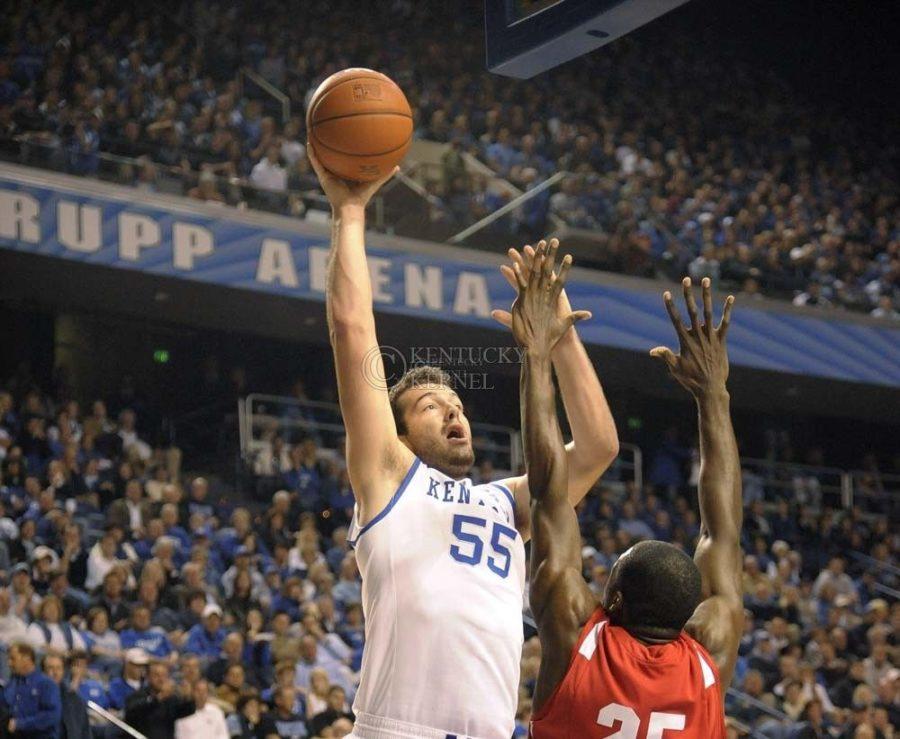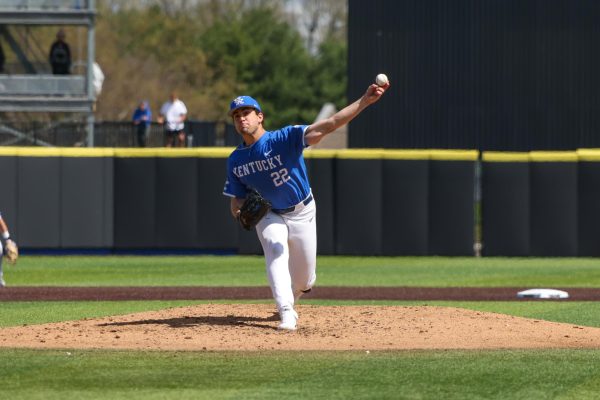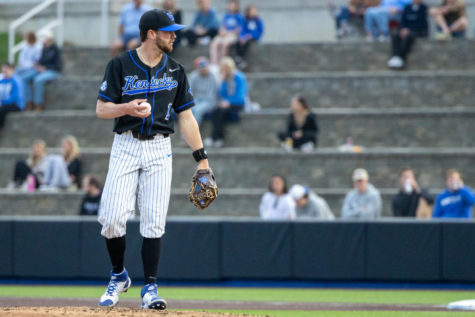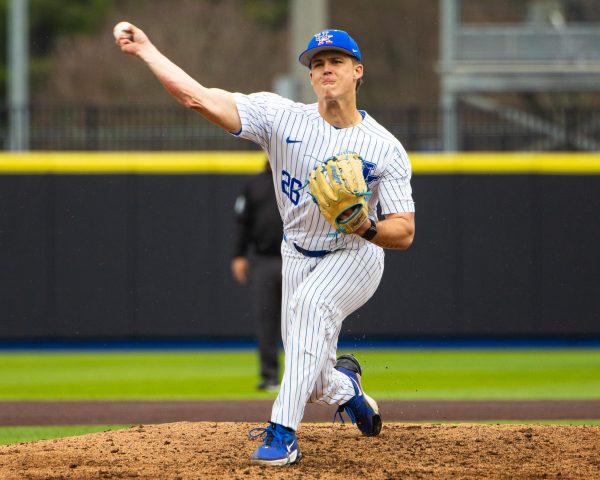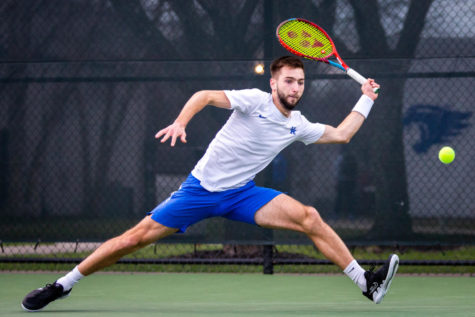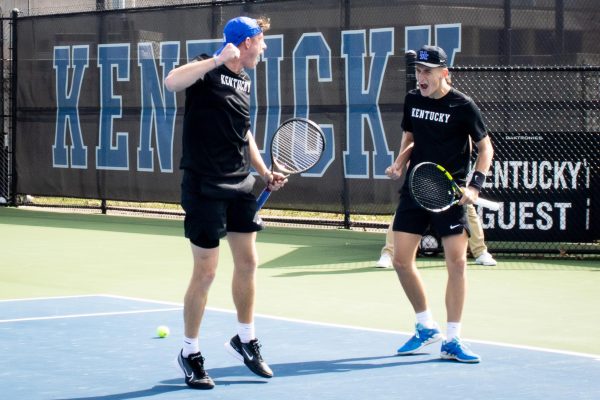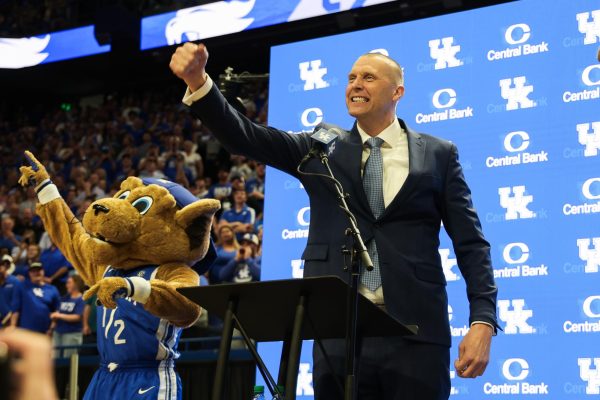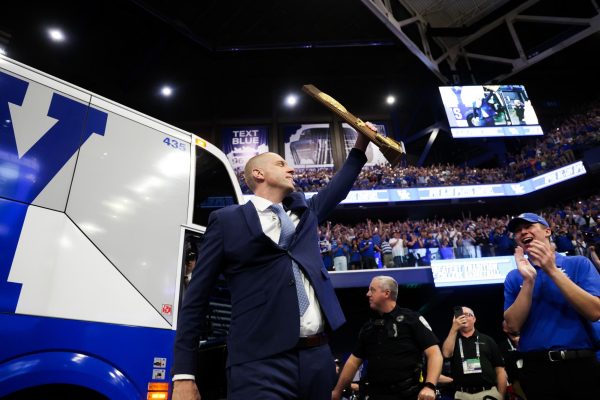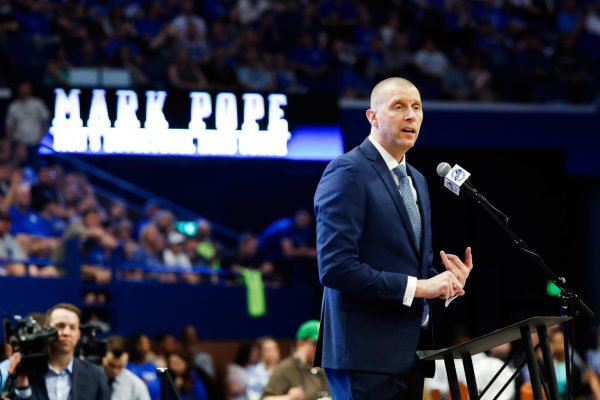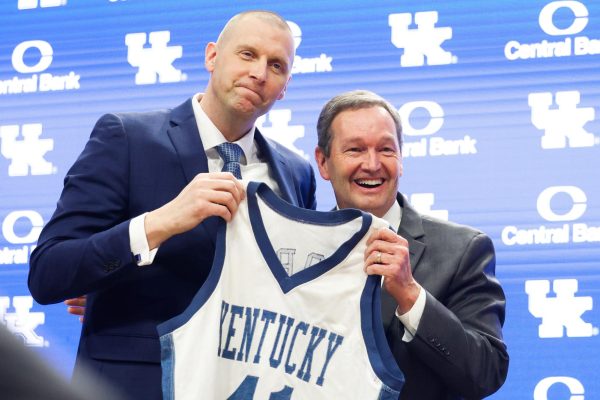Harrellson might have helped Kanter after all
UK’s Josh Harrellson pulls up a shot during the first half of the University of Kentucky’s basketball game against Boston at Rupp Arena in Lexington, Ky., on 11/30/10. UK led the game at half 40-33. Photo by Mike Weaver
May 16, 2011
Ever since Enes Kanter began missing playing time because of NCAA violations, the unintended benefit was a common refrain:
At first, the statement carried a tone of resignation and disappointment. It was simply a simply a silver lining, but not one to truly believe in. Attend a UK practice, and you could see the true talent, kicking some teammate ass in his No. 0 practice jersey, away from public visibility of any sort in the Joe Craft practice facility. Meanwhile, Tyler Zeller dominated UK in a career performance as Kanter sat at home, several states away from helping.
As the year progressed, thoughit started to carry more and more legitimate meaning. Harrellson continued to improve. Maybe he could hang with the SEC’s best front-line guys. Maybe. When the SEC Tournament rolled around, it came out correct: Harrellson outplayed JaMychal Green, a reassuring spectacle that bolstered UK’s chances heading into the postseason. His play continued there; he played Jared Sullinger to a draw and performed well against Tyler Zeller in their second go-round.
And now, TNT’s David Aldridge has an article that ranks Harrellson as the No. 3 prospect at the center position. That’s one spot behind Enes Kanter (although lots of picks would probably separate the two, as the draft is weak overall and weaker at the center spot). It’s a crazy thought that Josh Harrellson may be the next center picked after Enes Kanter. A lot of his improvement can be credited to going against Kanter in practice.
But the dynamic proved mutually beneficial. Kanter was able to keep some semblance of game-ready form by being able to practice every day. Dozens of stories were dedicated to how the ineligible Turkish center helped the forced-into-playing American center. None were dedicated to the inverse, and maybe some should have been. And here’s the quote, from a Pacific division executive (that’s either the Lakers, Clippers Suns, Warriors or Kings), that made me think of writing this:
“You could have seen him go against Vanderbilt or Florida and you might not see him go up against a guy better than Harrelson.”
Now, that might be true, although I’m going to hedge that a bit. Even if you say Harrellson is better than Festus Ezeli and Alex Tyus and JaMychal Green, going against that variety of players and playing styles certainly would have helped Kanter. But while the dynamic between the two UK centers initially appeared to be 100 percent beneficial to Harrellson and 0 percent to Kanter, it appears to be closer to even.
It reminded me of a topic that came up in January. We were trying to get a gauge on how much Kanter helped Harrellson; someone asked who won the head-to-head battles.
“He scores on me, then I score on him. So it’s both ways,” Harrellson said. “He’s a little bit better, but not much.”
At the time, I’m not sure how many people truly believe that Enes Kanter was a “little bit better, but not much” than Josh Harrellson. I didn’t. But that quote — that Harrellson provided better competition than anyone else in the SEC — gives some credence to Harrellson’s abilities. The perception of Harrellson as any more than a not-too-talented role player, even though he proved otherwise at the end of the year, was hard to readjust no matter how many putbacks we saw him score.
Turns out, however, Harrellson may have been more than just a reminder to Kanter that he would be dominating anyone UK played. Harrellson may have been just the the type of player Kanter needed to keep his skills honed by playing against every day.
It may have caused some lottery teams considering Kanter and needing the reassurance that he could still play to say:





